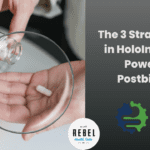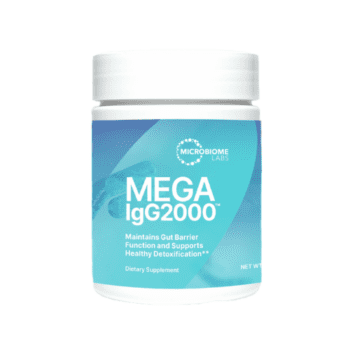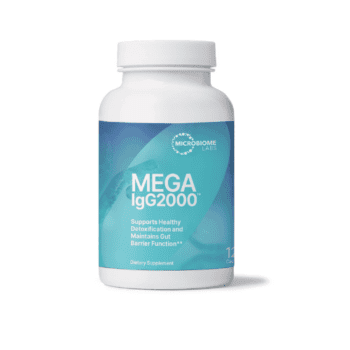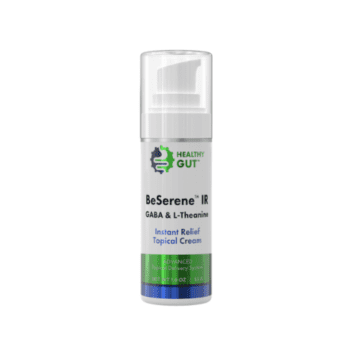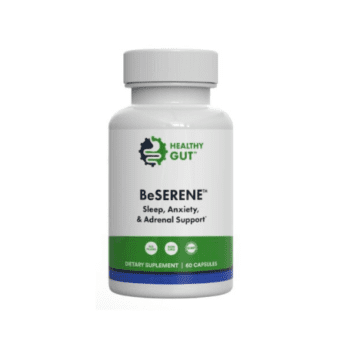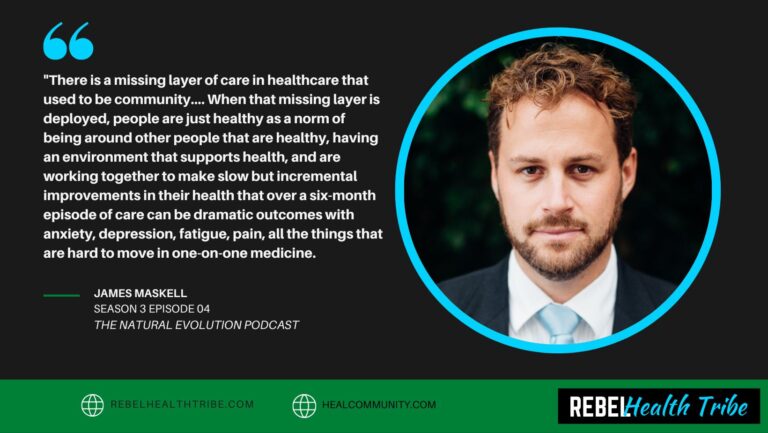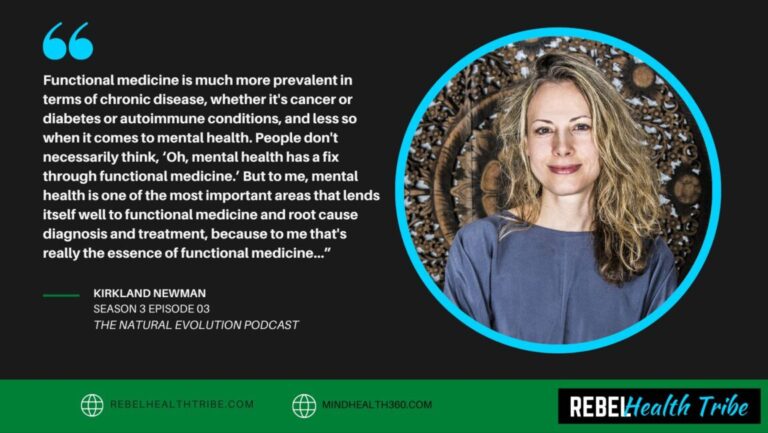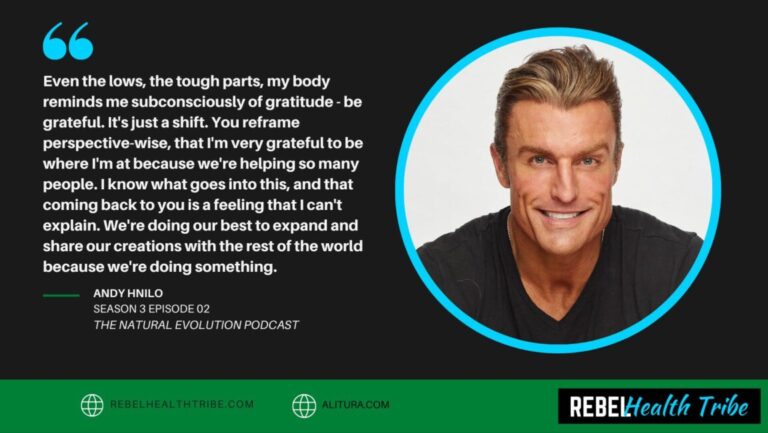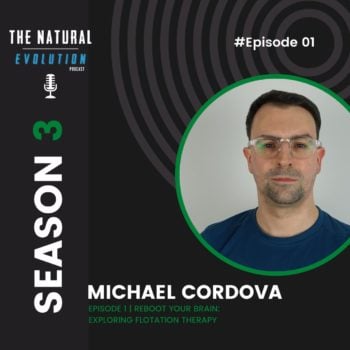
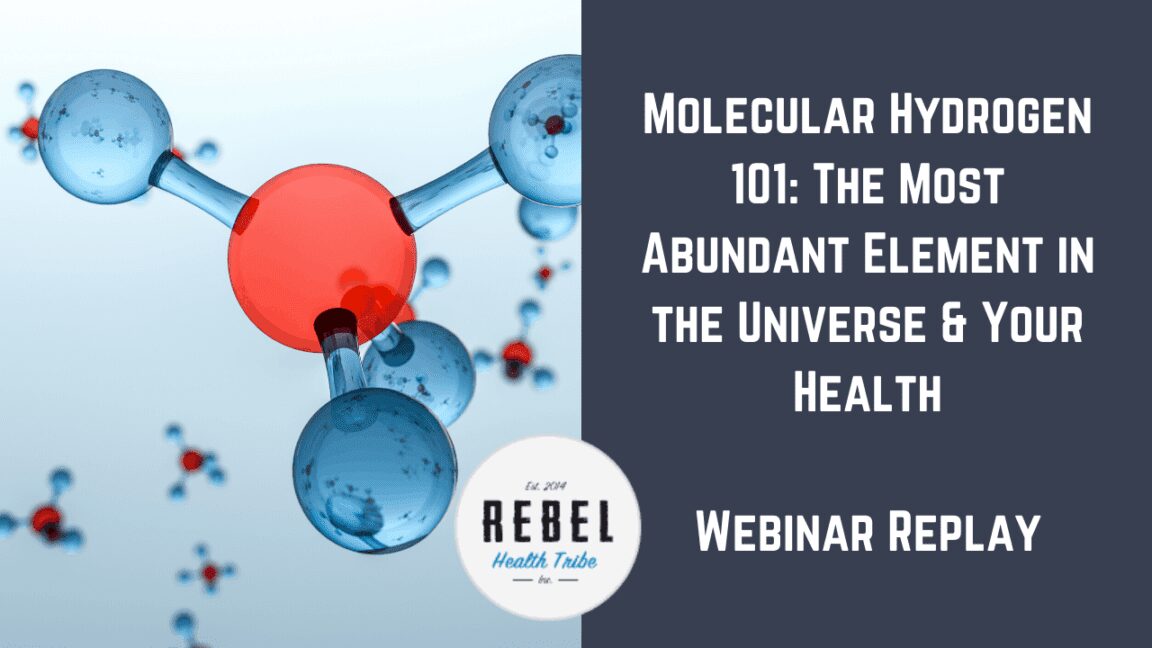
More Posts from
Foundations & Optimization
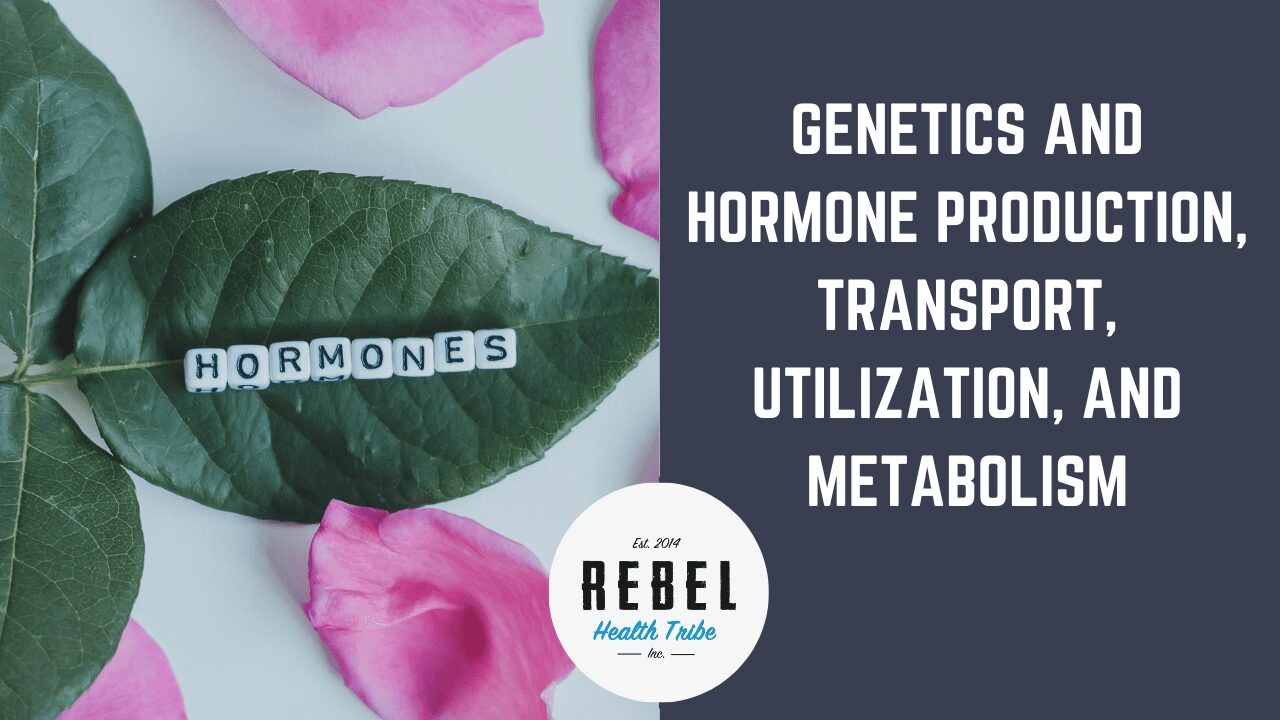
Genetics and Hormone Production, Transport, Utilization, and Metabolism
Our genetics play a larger role in our hormones than most people
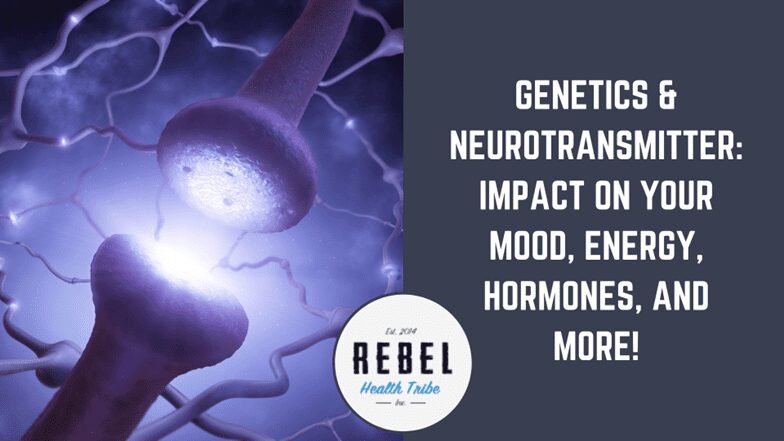
Genetics & Neurotransmitters: Impact on Your Mood, Energy, Hormones, and More!
Have you wondered why an antidepressant didn’t work for you? Have you
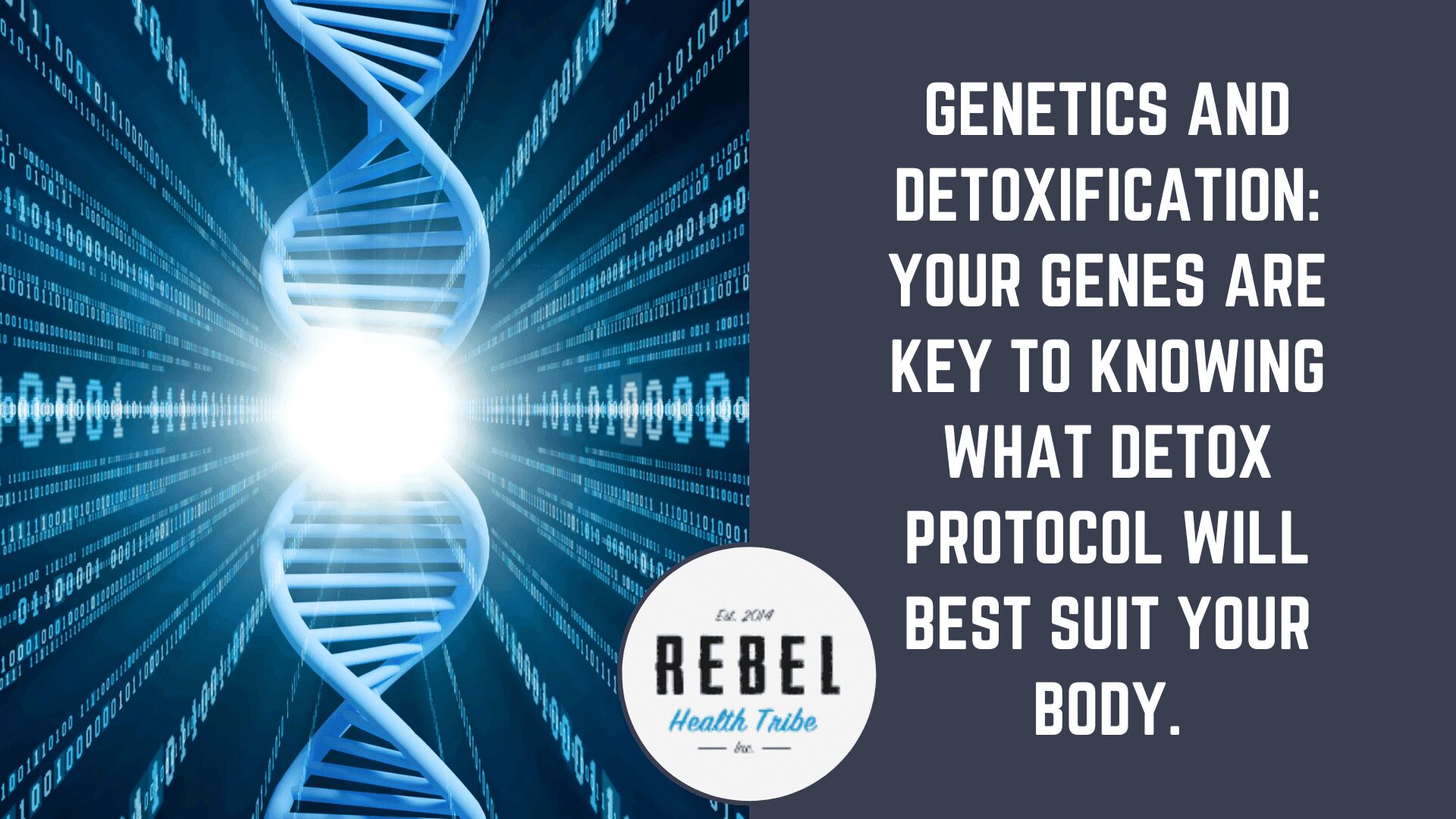
Genetics and Detoxification: Your genes are key to knowing what detox protocol will best suit your body.
https://vimeo.com/821487331 If you’ve ever bought a detox kit off a shelf

RHT Health Foundations &
Optimization Guide
Our Top Recommendations in One Simple Guide -
Your Starting Point for Optimal Health!
- 12+ years of research and experience distilled down into one simple guide
- Easy, practical, and actionable steps you can take right away
- The most-repeated recommendations from our 100+ guest experts over the years
- Something for everyone - regardless of where you are on your health journey
https://vimeo.com/428135357/c43064fa53
Webinar Transcript: Molecular Hydrogen 101: The Most Abundant Element in the Universe & Your Health
Michael Roesslein: And we are recording and live. Hey everyone. We are here today for another Rebel Health Tribe Webinar, this time to talk about hydrogen. New subject. Never had a webinar. Never talked about it before. So I’m pretty excited, and I have Tyler here with me. Tyler is the expert on hydrogen and the founder of the Molecular Hydrogen Institute. Tyler LeBaron, can you say a little bit about yourself and how you got so into hydrogen?
Tyler LeBaron: Yeah, absolutely. So pleasure to be here. Pleasure to educate and talk about some of the research that I’m involved in and a lot of other people. It’s quite exciting. So yeah, I got involved in hydrogen research really back in 2009 when I was doing my undergrad in biochemistry and I came across some studies showing it has these therapeutic effects, and then I was able to go to Japan and did an internship at Nagoya University in neurogenetics where we researched the molecular mechanisms of how hydrogen gas was exerting these effects, and then I started Molecular Hydrogen Institute in 2013 and I’ve continued just doing research and collaborating with researchers around the world and speaking at various medical and academic conferences and symposia. So yeah, it’s my pleasure to be here for sure.
Michael Roesslein: Yeah. It’s going to be fun. What drew you to it originally? You just saw something and it sparked this, “I need to know more about this,” or …?
Tyler LeBaron: Well, pretty much. Yeah, maybe there’s some divine intervention or something, but actually I’ve always been very interested in health and wellness and exercise, anti-aging. I mean even when I was in elementary school and middle school, I was reading different stuff and just very fascinated about all these different areas, and in 2009 I came across alkaline ionized water, and before I had heard in my earlier days of high school and different things … I was reading a lot of naturopathic and different books and things and I was subscribing to the concept of alkaline diets and alkaline this, and I didn’t have really a scientific background. I was in middle school, high school age, but I was learning about this, and when I heard about alkaline ionized water. I thought, “Hey, this is perfect. This is alkaline water. You’re going to drink it and you can get all these benefits,” and there’s so many claims and so I was skeptical, but at the same time I felt like maybe there’s something here, and I went ahead and started researching it more and when I went back to school at the university, I started asking all my science professors about alkaline ionized water.
And of course they debunked it very quickly, which I think we can spend some time doing here as well, but one of the things that we learned though is alkaline ionized water can have therapeutic benefits, and that is because during the process of electrolysis, of making the pH high, you produce a byproduct called hydrogen, hydrogen gas, and when I was figuring this out and I thought, “Hey, maybe hydrogen is therapeutic,” and sure enough, found some articles published, one specifically in Nature Medicine showing that hydrogen could act as a selective and therapeutic antioxidant, and when I saw that article, I was like, “Man, this is really spectacular. This is really interesting. I really want to learn more about this,” and so I guess from that point on, I started to kind of dedicate my time and resources and life and interest to researching molecular hydrogen.
Michael Roesslein: That’s an interesting roundabout way. I have experience with alkaline ionized water too, and I got lucky. The person who introduced me to it originally, they talked about the hydrogen.
Tyler LeBaron: Yeah. Yeah.
Michael Roesslein: They knew. They knew that half of the language used around those things is kind of nonsensical.
Tyler LeBaron: So here’s the question, when were you introduced to it?
Michael Roesslein: 2009.
Tyler LeBaron: Yeah. Okay. So around the same time. So that’s interesting, because very few people had ever heard about hydrogen being involved in any of this –
Michael Roesslein: They said it came from the cleaving of the molecules, which made extra hydrogen in the water. They just didn’t call it hydrogen water, and now I know there’s devices that make hydrogen water, and I don’t know if they do the same thing or not because I haven’t looked into that, but yeah, they said the hydrogen was an antioxidant, and we keep using the term antioxidant. Do you want to maybe just … we’ve talked about antioxidants quite a bit on various webinars and things here, but maybe we give a little bit of … would you say it has an antioxidant property to it?
Tyler LeBaron: Yeah, yeah. We should go over that.
Michael Roesslein: What does that mean?
Tyler LeBaron: Well, and I also want to clarify too with hydrogen, what we are talking about, because sometimes there’s confusion still about alkaline –
Michael Roesslein: Yeah, before we jump there. So let’s go … hydrogen is number one.
Tyler LeBaron: Yeah, exactly. It’s number one by definition. When you go back to your high school chemistry, you see hydrogen, number one on the periodic table of elements, and that’s atomic hydrogen. It’s very reactive in its elemental single form, so it quickly reacts with other compounds, like oxygen to form water, or carbon to form carbohydrates, or nitrogen and carbon to form proteins, for example, but it can also react with itself. So you have two hydrogens react to each other and they form hydrogen gas. So it’s di, meaning two, dihydrogen, or it forms a molecule of hydrogen. So molecular hydrogen. Then it’s just a simple gas. This is the alternative energy source. I mean it’s three times more energy dense than gasoline, and so that’s why it’s a very good option for this alternative fuel.
And so this is a hydrogen gas we’re talking about. It’s the smallest molecule in the universe, which comes to be very important when we’re talking about bioavailability to our actual cells, but when you take the hydrogen gas … and you can inhale it directly, you can dissolve it into water. We can talk more about these methods later, but when you take hydrogen gas and dissolve it and into the water, it doesn’t somehow alter the water structure or create H3O or H4O or something like that. It’s just hydrogen gas that’s dissolved in the water. It’s very different than say hydrogen peroxide. A lot of people often go, “It’s the same with hydrogen peroxide.” Remember, hydrogen peroxide has the formula of H2O2. So water is H2O, hydrogen peroxide is H2O2. So that’s an additional oxygen, not hydrogen. So there’s just no similarities between the two.
Michael Roesslein: We’re just talking about straight hydrogen, no oxygen.
Tyler LeBaron: Exactly. Yeah. Just straight hydrogen. This is hydrogen gas. So yeah, one of the first articles I mentioned, it showed it has this therapeutic antioxidant effect, and there’s a lot of importance about this. So of course, in order to understand the antioxidants, we have to understand the oxidants themselves, and of course, we know that if you cut the apple in half, it causes browning and you have this oxidation, rusting, all of this happens, and when we breathe oxygen, that same thing is happening inside of our bodies and creating these reactive oxygen species and a lot of these free radicals, and of course, when we eat the apple again, for example, the reason why when you first cut it in half and it’s not brown is because the apple actually has antioxidants in it to prevent it from turning brown, and once those all get oxidized, then the apple turns brown.
So that’s why when we eat our fruits and vegetables and plants and a lot of different things, that’s one way we get antioxidants and those antioxidants can in turn help us combat the oxidants that are produced inside of our bodies, just through normal metabolism. Maybe even 1-2% of all the oxygen that we breathe gets converted into these reactive oxygen species. So it’s an ongoing process that we’re always having to battle. So of course, when we breathe … we have to breeze so we can live. Oxygen is of course crucial for us to survive and live, but it is always interesting just to consider that the very thing that is keeping you alive, oxygen, is also the very thing that is killing you.
It is slowly causing that oxidation. So we need to be able to combat this, and that of course is down through antioxidants, but it’s not that simple. Typically when we think of antioxidants, we think of some simply an electron donor, and so you have say vitamin C, a whole bunch of electrons, and then you have an oxidant, and the vitamin C just donates an electron to the oxidant and voila, everything’s fine, but actually it’s not that simple, because first off you actually have to get … that vitamin C has to be at the right place at the right time in order to actually cause that reaction with the oxidant. So let’s say you have a free radical that’s being produced in the mitochondria. Well vitamin C is lipophilic and it has to go through transporters. It can’t really go through the cell membrane.
There’s a lot of things that make it so vitamin C, or any other antioxidant really for that matter, can easily diffuse to the cell membranes and get into those locations right at the exact time that that free radical is being produced, and if it’s not there right at the right time, then that free radical is a free radical. It’s going to react with something else very quickly and so it might just go ahead and react with one of the cellular bio membranes or bio molecules, your DNA, RNA, proteins, lipids, and cause oxidation well before an antioxidant is able to go in there and neutralize it in the first place. So I just want to clarify that although it makes perfect sense, “Hey, we’re getting a lot of oxidants. So we just need a lot of antioxidants and that’ll just combat the oxidants.”
Well it’s not so simple. Another problem is, well let’s say that you do have the perfect reaction of an electron leaving the antioxidant and then going to the oxidant. So now you’ve neutralized that oxidant, but now what did you do, is the antioxidant is now missing an electron, and now this could be a problem, because now this could actually be called a pro oxidant and it can cause further damage. It can go through this whole catalyst to cause more free radical damages. So that has to be taken care of, and so it needs to be reduced for example, with glutathione, but then now glutathione is gone. Now that has to be activated by say a glutathione reductase, and then you have to use in your NAD pH equivalent. So there’s a whole cycle that starts getting perturbed.
When you start having more and more of these free radicals, and pretty soon you can run out of reducing equivalents, you start making more pro oxidants, and your body just can’t handle it, and so of course, antioxidants, we need them, but do they really help the way that they would appear they should on paper, for example? And it turns out when we look at the clinical studies, for some of the reasons I just explained, that’s not necessarily the case, and in fact, some of these clinical studies, they looked at high levels of say, beta carotene, vitamin A, vitamin E. They’ve actually had worse outcomes. In fact, some of the studies they had to stop before they even finished the study, before they even completed it, because they were taking these high does of –
Michael Roesslein: Beta carotene, right?
Tyler LeBaron: Yes, exactly, or vitamin B. Yeah, they were getting cancer and dying faster. So it’s very, very problematic. Absolutely. So why is that happening? Well, we could go in and talk about, well, those are just synthetic antioxidants and they didn’t have the right iso forms or they didn’t have this and that. Well, although some of that of course may certainly be true and we can go into a deeper discussion of that, the fact still remains that these are still reducing agents. They still have the stoichiometry, the reducing power, the equivalency, that they should still be able to neutralize these toxic free radicals that are slowly causing aging and damage and death and everything, but that’s simply not what’s happening. That’s not the case, and in fact, if we want to go into this even more … because I think this is very interesting.
It’s not a problem with having too much free radicals. That’s not really what the problem is. The problem with aging and disease is actually having both to too many or too much free radicals and not enough at the same time, and I term that redox dysregulation. So redox, of course, oxidation and reduction, oxidants and antioxidants. And you have to have this homeostasis, and when that gets perturbed and you lose that homeostasis, then you have a dysregulation in that redox status, and the research has shown that in the exact same cell, you can have too much free radicals going on, say in the cytosol. So now you’re causing damage, lipid peroxidation, that’s going to induce apoptosis or cell suicide, but in the exact same cell, in one of the compartments, say the endoplasmic reticulum, which are responsible for folding proteins, you don’t have enough oxidizing power, oxidizing potential.
You’re not able to create the free radicals that your body uses a needs in order to fold your proteins correctly. So if you’re lacking that oxidizing power to fold your proteins correctly, now your proteins aren’t going to have the right structure and therefore not the right function. So that becomes very problematic as well. So all of this helps us really understand that it’s not just having too much oxygen distress or too many free radicals, but really a complete imbalance in our redox homeostasis. Does that make some sense?
Michael Roesslein: So you’re looking more for modulation than for more or less, necessarily? Because we can get out of balance in either direction. I think the misconception is that we always need more antioxidants.
Tyler LeBaron: That’s absolutely right.
Michael Roesslein: And that pounding all the antioxidants is the way to go and then you’re immortal like [inaudible 00:14:44].
Tyler LeBaron: Yeah, exactly. Yeah, and that’s the thing. When they’ve done the research, they’ve shown that in fact, the more antioxidants you’re pounding away, the worst the outcomes are, and when you consider all those things I talked about from the transport mechanisms, from creating pro oxidants, and actually the fact is that redox dysregulation, not just too many free radicals, well then you can imagine by taking more antioxidants that could just exacerbate the very redox dysregulation that you’re trying to fix in the first place, and that perhaps explains some of the reasons why a high doses of longterm antioxidant supplementation really don’t help like we’d like to see. So then of course that begs the question, well then how is hydrogen any different? What makes it unique or perhaps even superior in these cases? So there’s a couple of things to consider that help uniquely qualify it to be a superior or an ultimate type antioxidant.
One of those is we talked about the size already. So of course hydrogen is the smallest molecule in the universe and size is very important, because the smaller it is the easier it can get into the cells, and we talked about problems with say vitamin C or vitamin E or other … these are larger molecules. Vitamin C has a molecular weight of 176 grams per mole versus hydrogen gas is simply two grounds per mole. So a very big difference, and that low molar mass and very small size is going to allow it to go right through the cell membrane at a very high rate of diffusion, where it can be at the location at the right time, and so that’s one of the things to consider, and also when it comes to getting into the cell, we have to talk about ionic charge or polarity, because remember, ions don’t just go through the cell membrane either. They have to go through protein channels.
That’s why we have sodium channel, potassium channel, calcium channel. Charged ions can’t go through the cell membrane. They have to go through a specific protein channel, and even water, which is not charged, but water is a polar molecule, polar covalent bonds, and that’s going to require it to also be forced to go through a protein channel called an aquaporin, which many of you have heard of it before, but these aquaporins are protein channels that allows water to diffuse to the outside of the cell, to the inside of the cell, and vice versa. So with hydrogen gas on the other hand, it doesn’t require any such protein channel. It can go right to this cell membrane. It could also go through the aquaporin. It can go through pretty much anywhere it needs to. So when we talk about cellular bioavailability, well, in a lot of ways, hydrogen gas then has the highest cellular bioavailability that you could imagine, that you could fathom, that you could conjure up for, because it’s perfect in that way. So that’s one property of hydrogen that suggests that it can have a superior effect or uniquely qualifies it as an excellent antioxidant, and then there’s a couple more that we can get into.
Michael Roesslein: Sure.
Tyler LeBaron: Another one is the selectivity of molecular hydrogen. So we talked about how a lot of free radicals are actually good for us. We need these free radicals. We need things and these reactive oxygen species like hydrogen peroxide. Our immune system, for example, creates superoxide radicals. We do a lot of things to kill the pathogens, the viruses. Nitric oxide is another big one. Of course that’s a vasodilator and that’s of course how say Viagra or different things work. Actually technically it’s a CGMP transporter, but anyway, the point is it’s the same concept, is nitric oxide is a free radical and yet that is one of the most crucial molecules that we have, that we produce.
And so again, if we were to take a bunch of antioxidants and somehow neutralize all the nitric oxide, all the superoxide, all the hydrogen peroxide, well now we’ve just decimated our immune system, our ability for vasodilation, and our cell communication, and a whole bunch of other things. Fortunately, taking lots of antioxidants doesn’t quite have such a dramatic effect so quickly, but obviously we are seeing it has a detrimental effect. So hydrogen gas on the other hand, it’s what we consider to be selective. It actually does not … hydrogen is very mild. It’s a very mild reducing agent. It’s not a powerful antioxidant, and because of that, it’s going to hold on to its electrons quite well, and therefore it actually cannot react very easily or at all, actually, with most free radicals, and most radicals meaning the ones that are less reactive and therefore are important signaling molecules, such as nitric oxide, superoxide, hydrogen peroxide.
These are all important reactive oxygen species that are used in normal cell signaling, and hydrogen gas, you put the two together, they simply don’t react at all. It’s incapable to overcome the activation energy required for hydrogen gas to react with these radicals, but if there is a reaction that can happen, it would occur with the hydroxyl radical, which is the most cytotoxic or cell damaging radical that there is. It’s extremely reactive, extremely powerful. There’s no benefit from the hydroxyl radical. It just damages cells, and can do some lipid peroxidation and leading to cell death and so on. So this is very damaging and hydrogen gas does have the ability to react with the hydroxyl radical, and also research shows that can reduce pramoxine nitrite, which we know is now is one of the most pernicious reactive nitrogen species that there are that really mediates a lot of the damaging effects of just so many problems with diseases and aging and exogenous toxins and pollutants and so on.
Michael Roesslein: Which one is that?
Tyler LeBaron: That’s pramoxine nitrite, and that’s probably worse than hydroxyl radical, just because I –
PART 1 OF 4 ENDS [00:21:04]
Speaker 1: And that’s probably worse than hydroxyl radical, just because hydroxyl radical is so reactive, it reacts as soon as it’s produced. Whereas peroxynitrite, it’s a little bit more stable and that’s going to allow it to travel further where it can then damage your DNA and a lot of things directly, it can actually travel. But again, the research shows that hydrogen has this selectivity where it can only neutralize peroxynitrite and the hydroxyl radical. So we don’t have to worry about hydrogen gas getting in the cells really easily, which it can do, but when it’s in there, we don’t have to worry about it now just neutralizing, indiscriminately, all those important free radicals and reactive oxygen species that our body needs, that our immune system needs, that our cells need, the whole reason we metabolize and influence our gene expression, all based on these reactive oxygen species. Hydrogen gas can’t neutralize or perturb that redox homeostasis. It’s going to work to help to maintain redox homeostasis. Does that make sense?
Speaker 2: Yes. Yeah.
Speaker 1: So, we’ve talked then about two things that make it superior. Its size, ability to get into the cells, we’ve talked about its selectivity. Another one that can have its antioxidant effect is actually by modulating signal transduction. You used the word modulating before, well here we go again, hydrogen is a gaseous signaling modulator. And for example, one of the problems during an immune burst of different white blood cells, you can have an upregulation of an excessive production of free radicals from this complex called NADPH oxidase, so your NOX enzymes. And when that gets hyperactive, that can in turn create too much superoxide and now that’s going to get rid of all your glutathione, all your antioxidants, all your endogenous antioxidants. And when those are gone, you’re just set to just basically your cells are going to go through apoptosis, they’re going to die because there’s nothing left to protect them when those levels get too high, when they get excessive.
And then of course, when the superoxide levels get high and then your nitric oxide levels are also getting high from different NOS uncoupling and from different things that are going on. Now superoxide and nitric oxide, they react instantaneously and form peroxynitrite, that’s that molecule we just talked about, which is the most pernicious damaging oxygen there is. So again, too high of superoxide is bad because it can cause lots of damage itself and then of course because it can immediately, instantaneously react. I mean, the only thing that slows it down is the rate of diffusion but any connection causes the formation of peroxynitrite.
So hydrogen gas, we talked about the modulation, well, this is where hydrogen gas comes in. It’s able to come in and it can suppress or downregulate the NOX activity, suppress NADPH oxidase activity, so you’re not making the excessive or too much amount of the superoxide radicals. So you’re actually preventing the excess formation of these highly reactive compounds so that you can then be protected. So we’re talking about prevention in this way. Does that make sense?
Speaker 2: Yeah.
Speaker 1: Okay. And then another way. So we talked about the size and we talked about selectivity, we’ve talked about, this one was the prevention. And now a fourth thing, and this is what I would consider to be the most unique and powerful and amazing attribute of molecular hydrogen, is hydrogen has the ability to tell the body, to tell the cells, to produce more of its own antioxidants at a homeostatic level. It does that by activating what’s called the Nrf2 pathway, or Nrf2-Keap1 pathway. And this is a transcription factor that when it gets activated, goes into the nucleus of the cell where it binds to the DNA and induces the production of the body’s antioxidants. And this Nrf2 controls over 500 different cytoprotective proteins and detoxification enzymes. So antioxidation and detoxification are regulated by the induction of these phase two enzymes, which is all controlled by Nrf2.
And again, there’s a lot of Nrf2 activators, sulforaphane and a whole bunch of other things, people have heard about this stuff before. But again, these could be potentially say indiscriminate, they can just come, they get in the cell, and they oxidize the Keap1 from the Nrf2 and it causes the production of these antioxidants. And perhaps you don’t actually need them, or perhaps this cell needs them, but the adjacent cell does not, or this organ needs them, but this organ does not. And so there’s still no selectivity really there either when you take these [inaudible] other compounds.
Whereas with molecular hydrogen, it’s able to go into the cells. And if it’s already at the redox homeostasis, so your superoxide dismutase level, glutathione levels, your redox status is already within that homeostatic range where it needs to be, then you’re not going to upregulate, at the protein level, Nrf2. You might upregulate say mRNA levels, just so it’s there, primed, ready to go, let’s say. But you’re not going to actually see an increase in your antioxidant enzymes because you don’t need to, you’re already where you want to be. Versus it goes to a different cell, a different organ, that’s suffering from acute or chronic oxidative stress, and you have lower glutathione levels, you have lower superoxide dismutase levels, you have this lower redox status, then in that case, then molecular hydrogen would go in and you would see an increase in the Nrf2 activation and subsequent induction of those phase two enzymes. So now you start seeing higher levels of catalase, glutathione peroxidase, and glutathione reductase, so you can recycle the glutathione and so forth.
And anyways, this is the fourth reason, I guess I would say, that makes molecular hydrogen a very unique and selective and ultimate antioxidants so far. Does that make sense?
Speaker 2: Yeah, but I missed a number. I have size and selectivity.
Speaker 1: Okay. So we have size, selectivity, we have the suppression or prevention, and then we have the … Let’s see, what was the other one? I just [inaudible] talked about it, Nrf2 activation. That’s four, right?
Speaker 2: Yeah, yeah, yeah. Okay, cool. I missed a couple of numbers. I kept writing all the notes, I just didn’t know where the numbers went. Cool, so how does … So a little backstory on us here with hydrogen, we’ve taken it a little bit for awhile. Like my wife has multiple autoimmune conditions, it was recommended to us a couple of years ago. We did like a tablet most days, but we never did it real serious. And she’s been in an acute flare on and off now for almost nine months that we’ve had a really hard time getting under control.
We started working with a new doctor and the first thing he said is take time off work and start taking more hydrogen. And that was like the first recommendations and I’m like, “You mean this?” And he said, “Yeah, well, whatever form that you have. Three to four times a day instead of once.” And it was for inflammatory cascades, like slowing down inflammation, which the Nrf2 plays a role there too. But can you talk a little bit on how any of these functions, or maybe it’s separate functions, that would apply to inflammation, like systemic inflammation or chronic inflammation or anything like that?
Speaker 1: Yeah, perfect. Yeah, that’s probably the other big aspect of molecular hydrogen is because it really plays into a lot of different areas of inflammation. So when we look at a lot of anti-inflammatories, say NSAIDs, nonsteroidal anti-inflammatories, they have one target that we typically look at. For example, ibuprofen will come in and it’ll inactivate the COX enzyme, cyclooxygenase enzyme, so it prevents the production of prostaglandins. This other anti-inflammatory work from this level and so on. And it’s kind of a one target, one mechanism, tight method, but hydrogen works quite differently. Again, we’re talking about total cell modulation where we’re altering gene expression, protein phosphorylation cascades, and micro RNA levels, and all of these feed into various inflammatory response and inflammatory pathways.
So one of the biggest inflammatory responses or mediators is again, another transcription factor called NF-kB. And NF-kB same thing, when it gets activated, it’s going to go into the nucleus and it’s going to induce the production of a whole bunch of pro-inflammatory cytokines and a bunch of other mediators. And often say tumor necrosis factor-alpha, which is a potent cytokine, that can activate NF-kB, and then NF-kB can cause the production of more inflammatory mediators and then you get higher levels of tumor necrosis factor-alpha, and this whole thing goes. But at the same time, you have another cycle with all the free radicals. So superoxide, hydrogen peroxide, nitric oxide, all of these. They’re also, at the exact same time, they’re activating by oxidizing sulfur groups, disulfide bonds, and different places, causing the activation of inflammatory responses. And so you have this vicious cycle that’s continuously going on.
So I’ve already talked about the oxidation, antioxidant redox status here, which that alone is going to ameliorate significantly the amount of inflammation that’s going on, just by [inaudible] the antioxidant status.
Now over here, we’re talking about specifically the inflammation. So we started talking about NF-kB, well molecular hydrogen, just like it did with the NADPH oxidase enzyme in suppressing superoxide production, it also has the ability to suppress activation of NF-kB. And if you suppress this major, major transcription factor, then you are subsequently going to suppress major, major production of various pro-inflammatory cytokines. And so that’s another major thing that we see with molecular hydrogen research, is the inhibition and suppression of NF-kB. Not always, but sometimes … I’m going to get back to this, NF-kB is very big, but that’s just one of the things, we also see hydrogen can suppress even the excess production of TNF-alpha, which is what is activate in NF-kB in the first place. So we’re working on NF-kB from multiple pathways from the reactive oxygen species, to TNF-alpha, some more closer direct effects that are closer to the upstream targets of that.
And then we have all the mediators, which hydrogen gas also has the ability to influence. And that’s just on that pathway. But when we look at other transcription factors and other major mediators, like c-Fos, NFAT. These are also, just like NF-kB, major signaling mediators that induce and regulate inflammation. And unlike a lot of drugs that just, this specific enzyme or this specific target, hydrogen is working at the level of gene expression of transcription factors and not working with just one, but several, actually quite a number of them that I just mentioned, like c-Fos and NFAT, and it has the ability to regulate, to modulate these as well. And so in turn, it’s going to modulate and attenuate what’s being produced on that inflammatory response.
So we have this again, this cycle where hydrogen is working from multiple different levels. And we could go through that same list type thing where its small size, able to get in there, it’s going to be selective in the sense that it’s not going to just indiscriminately reduce all inflammation because we absolutely have to have inflammation and that’s so, so critical.
That’s the problem with aging, it’s not that we have too much inflammation … Well, it’s true you have too much low-grade chronic inflammation and that’s why you always have these aches and pains and swelling and this and all these things, you just have this low-grade chronic inflammation. But at the same time, you don’t have a very good inflammatory response, which is why you get sick easier, it takes you longer to recover, when you exercise, you’re sore for longer, you don’t get the gains, the mass gains, the strength gains that you used to when you were younger. All of this is because you have a hampered inflammatory response that would otherwise mediate a lot of the benefits or the needs that you need to have, that your body needs to have, to have optimal function.
So again, aging is associated with this dysregulation of the inflammatory response where you have too much on the one hand and then not enough or a delayed response on the other. And hydrogen is this adaptogenic type molecule that, again, just like we did with the redox status, can modulate the inflammatory response. And so we can suppress from multiple different levels, multiple different transcription factors, on the level of gene expression, on the levels of protein phosphorylation, without even altering gene expression actually, micro RNAs. All of these can influence this inflammatory response.
And like I said, it’s not simply unidirectional, in terms of its direction, that many anti-inflammatories are. NF-kB, turns out not only is it very pernicious when it gets activated and causes apoptosis and lots of inflammation and so on, it’s also extremely protective, it’s extremely protective of the cell. And that’s why it gets activated in the early phase, when it gets activated, that causes production of a lot of say, DNA repair enzymes, a lot of very important things so the body can adjust and get ready for it. But when it gets activated for too long, that’s when it causes apoptosis or cell suicide, cell death, and a lot of other problems and lots of inflammation.
Well, it turns out that in some cases, depending on the model that we’re using, the animal model of the cell culture study … And when we’re monitoring and measuring these levels by Western blot, you can see that in some initial stages, hydrogen actually increases and potentiates and activates NF-kB, followed by its suppression or downregulation later on. So hydrogen, it really shows to follow this modulating type effect where it can have initial increase here because hey, this cell or this organ or this condition or this person, it actually is lacking the inflammatory response it needs. And so it could potentiate that and get it back to where it needs to be. You can see an increased levels of tumor necrosis factor-alpha, NF-kB, interleukin-6, the anti-inflammatory interleukin-10. But that’s a short stage, an initial stage, and then that’s going to be followed by an overall suppression so that we don’t have this chronic high levels of inflammation all the time.
So I guess if we were to go through these, we kind of do with the redox status, right? So again, size is a number one, so we can actually get into the nucleus or wherever hydrogen needs to go in order to induce these effects, but into the body. Then it’s going to modulate not just one enzyme, but it’s upstream effects is on transcription factor, the actual gene expression. And so now it’s going to have, from the amplification cascade, it’s going to effect so many different pro-inflammatory mediators. And then another one is it’s not going to just do that just on one target, but rather there are a whole bunch of targets or a whole bunch of transcription factors that it’s working on. And then the fourth one is it’s not unidirectional, but rather is adaptogenic in its ability to modulate and regulate, to bring things into homeostasis. And yeah, let’s just leave it at that and then we can move on with … Does that make sense then?
Speaker 2: Sorry, I was muted. There was a leaf blower and a barking dog. Yeah, it makes sense. And that was great. So we covered antioxidants, their [inaudible] modulation, inflammation modulation. Is there any other big ones you’d like to hit before we do a couple of questions? Like, is there any impact on like blood sugar levels or metabolism or anything like that with hydrogen?
Speaker 1: Yeah, that’s probably a big one too, is the bioenergetics. So bioenergetics, the mitochondria, metabolic syndrome. So we actually just published a study, six months long, 60 subjects, and we found that molecular hydrogen supplementation, just that alone actually was improving BMI, for example, helping improve cholesterol levels, reducing oxidative stress, improving markers of inflammation. So it was very promising, just simply just drinking the hydrogen water.
But when we look at things like with diabetes, where you have issues with getting the whole insulin PI 3-kinase mechanism and regulating from the pancreatic beta cells, there’s so many different levels that’s going on. Diabetes, it’s really not just an issue with just, oh, your receptor isn’t working, right? So I think that’s why a lot of drugs aren’t so effective with diabetes because they’re, again, kind of unidirectional and look in that one specific target. Whereas, hydrogen seems to improve overall energetics in the entire cell. So by improving say mitochondrial activity, increasing PGC-1 alpha levels, increasing mitochondrial efficiency, all of these things can in turn have effects on glucose levels. And we see these in some of the clinical studies with patients with type 2 diabetes or insulin resistance or hyperglycemia, we’re seeing that their insulin levels can decrease, which is very important besides just the blood sugar, but also the blood sugar.
But not everybody responds so well or so quickly, some people do. And it’s interesting, like I said, some people, maybe they don’t have any response at all to the hydrogen, but I guess as a caution, some people seem to respond quite well to it. And because of that, people who are taking insulin, then if they’re doing that all the time and they start taking hydrogen, if they are a strong responder, then they need to just continue monitoring their insulin levels because they might notice that if they take the same amount of insulin and they’re taking hydrogen all the time, then they could overshoot the insulin and get hypoglycemia, for example. And we saw that in one of the clinical studies that was published.
Speaker 2: So insulin-dependent diabetics would want to pay close attention to their blood sugar?
Speaker 1: Yeah, yeah. Now interestingly though, I haven’t seen … And I’m not saying it doesn’t exist, obviously that’s a caution, but I’m just saying, it’s interesting that people who are insulin-dependent or suffer from different bouts of hypoglycemia, just for whatever reason, it doesn’t seem that hydrogen exacerbates that at all. So in this case, those people who are taking insulin and they were just kind of overshooting, because they’re taking the same amount as they normally do.
Hydrogen has so many different effects and sometimes hydrogen can actually increase the phosphorylation of various proteins that increase glycogen synthesis. And other times suppress those enzymes and then increase other enzymes that would increase glycogen breakdown and the energy expenditure, such as increasing the fibroblast growth factor 21, FGF21.
PART 2 OF 4 ENDS [00:42:04]
Tyler LeBaron: Increasing the fibroblast growth factor FGF21, which induces energy expenditure. There’s so many different pathways that hydrogen gas operates in axon that I think one, it makes it very safe and can be very effective for just overall health and anti-aging and a lot of different diseases and conditions, because all of these suffer from inflammation, reactive oxygen species, problems with mitochondrial bioenergetics. But at the same time because it’s not unidirectional, it’s a small molecule, it’s really quite mild. Most people probably won’t notice some sort of a jolt or something like that, which typically is a good thing because that means it’s not causing too much stress on the system.
That’s what hydrogen could be like, it’s like an overall thing that you do to maintain overall health and specifically used in conjunction with other things. But there’s no contraindications that hydrogen doesn’t react with different things either, so it makes it for a really safe molecule for study and research in the clinical investigations.
Michael Roesslein: Cool. You just answered about four of the questions in the Q and A.
Tyler LeBaron: Oh, wow. Look at that nice work.
Michael Roesslein: Nice work. Yeah, it’s super versatile. When I’m looking at anything I want to bring forth to our shop and our audience and anything we want to retail, I try to make it so it’s stuff that would be generally well tolerated and beneficial for most people without having to put a whole bunch of addendums. Like, “Don’t take it if this, only take it that, only take it at this time of day.” Because I’m not in the room with every person that buys anything from our shop. I’m not sitting there, I’m not guiding them. This isn’t a doctor-patient or practitioner-client relationship, so we try to make it as roundly beneficial as possible.
So we’ve got some good systemic enzymes. We’ve got some good probiotics and prebiotics. Things that would generally be wide-ranging products that we think would be beneficial for most anyone. And I think hydrogen really hits that nail where it’s something that most people would see some sort of benefit from adding, and the odds of some sort of adverse reaction are very slim. And so that’s kind of why I really wanted to bring it in front of everybody.
We’re going to get into some questions. I don’t have too much time left and I want to get to the questions. I’ve attended a webinar that Tyler was on recently and he could talk for about four more hours on this. So I don’t want to cut off awesome information because I know he can keep going, but I think that we got a lot of really great information and there’s some questions I want to make sure we get answered. And I have a lot of questions about hydrogen tablets, hydrogen products. We’ll get to that too. I just want to do a couple of questions with Tyler and then we’ll let him jump and then we can talk more about that. So I will just roll through here. Can I take other supplements with hydrogen water?
Tyler LeBaron: Yeah, absolutely. So again, because it has no contraindications. Where a hydrogen gas doesn’t react with different things, then it seems quite safe. Remember, hydrogen gas is naturally produced in the body from your intestinal bacteria when you’re eating fibers and things, so it’s something we’re always exposed to anyways. So again, it is very safe. And so it’s not that I’m a proponent of hydrogen because we have tens of thousands of strong clinical trials with millions of people or something. We still have a lot of research to go. There’s only 1,500 scientific publications on this, but the clinical studies, about 80 or so, that have been done are positive. They’re showing translational work from the animal to the human studies. But because hydrogen gas is really quite safe, I mean we haven’t seen any contraindications anyways. So that’s why I’m saying I think it should be something that we can take without so much worry.
Michael Roesslein: Someone says, “So doesn’t it dissociate into protons?”
Tyler LeBaron: Yeah, that’s the thing. It does not do that. As I mentioned earlier, that’s what makes hydrogen gas such a great antioxidant is it’s selectively. Hydrogen is a very stable molecule. It’s a covalent bond that makes it very stable, and so it doesn’t dissociate into protons and electrons when it, say, dissolves into water, when it goes into the stomach acid. Now, the PKA of molecular hydrogen is 33. So you have to have a pH over 33 in order to even have that from a pH standpoint. That doesn’t happen. But great question because that’s a common one.
Michael Roesslein: Can you overdo taking oral molecular hydrogen? I’ve been taking a supplement that gives eight PPM in 420ml of water. I’m guessing that’s the tablets. I take it three times a day. I don’t know if there is an overdoing it.
Tyler LeBaron: Yeah. Again, there might be an optimal amount where you go above that, you start getting diminishing returns. Maybe that’s two PPM, maybe it’s a hundred PPM, but we don’t know. There does seem to be some sort of a trend in some of the research that a higher dose or concentration could be more effective, but that’s not always the case. In other cases, there’s no difference at all.
So what I would say more in terms of overdoing it is what else is in there? So for example, if you’re just taking pure hydrogen gas and fuse it in water, well, you probably don’t want to drink more than a few gallons a day. Of course, not that much either, but that’s too much water. And the same thing may be with the tablets. You have to look at how much magnesium there is in there and then you don’t want to exceed say the UL. So that could be 10, 20 tablets and maybe that’s getting too much magnesium or something. So I would just look it on that side is what it is. And maybe eventually, hopefully, we’ll have the research showing “Hey, it’s best to have this much break between hydrogen or this much space or something for optimal use.”
Michael Roesslein: Yeah, it’s still new. I mean, relatively new. 1,500 is a lot of studies and it’s been a lot of years too. But there’s stuff that has 50,000 studies.
Tyler LeBaron: Yeah, exactly. Nitric oxide, 100,000 studies and we’re still now just understanding what it really does. And hydrogen gas really started in 2007. So actually it’s a lot. 1,500 studies-
Michael Roesslein: In 13 years, that’s a lot.
Tyler LeBaron: Yeah, that’s a lot. It takes about three to five years to get one good study published. I’m not saying all of the 1,500 are studies, a lot of them are reviews. But still, it’s quite a bit when you consider it from a scientific perspective.
Michael Roesslein: What causes excess superoxide radicals?
Tyler LeBaron: A lot of things can do that. One of the things, of course, just if we’re infected with viruses, pathogens, having a hyperactive immune response, then all of those things can excessively activate our NOX enzymes or our NADPH oxidase enzyme and that’s going to produce a lot more superoxide. But you also get superoxide from the mitochondria, so if you have an impaired mitochondrial function, then you can also start producing superoxide in that way also. So lots of ways to produce superoxide. And pollutants, sickness, disease, just aging, you can start getting excessive production of superoxide levels.
Michael Roesslein: Makes sense. Do people experience any detox symptoms when they start taking H2? I know we didn’t, but I don’t know.
Tyler LeBaron: Yeah. I used to always say no, but then I’ve started hearing different reports that some people who are ultra-sensitive, they seem to have… Of course, I don’t have the scientific vocabulary to say what I’m going to say. So what I say is completely false, but I’m trying to say a principal. They seem to have this die-off, or this hex-similar reaction or whatever type of thing. Those are scientifically not true, but I’m sure your audience can understand the principle of what that is. But it seems to be very rare, but there have been people who have said they have these like really strange reactions and things. But then, for the most part, I’ve heard they kind of go away. And maybe that has to do with what I was saying that some people, maybe they’re lacking some certain amounts of inflammatory response.
So it kind of gets the body to get back to where it’s supposed to be and it kind of takes some time to adjust. So you can always back down the dose or take some time or something and slowly go back on. But to me, it’s confusing because then I think, “Okay, does that mean you get the exact same response when you eat lots of fibers, which are producing a lot more hydrogen gas from intestinal bacteria than if you are drinking hydrogen water? But yet you don’t have the response then, so why are you having it now?” But then again, that begs the question then why is it therapeutic at all? And of course, that answer is more complicated and has to do with spiking and cellular concentration and things.
Michael Roesslein: You mentioned hydrogen water. What are the different ways that hydrogen can be consumed? I wanted to hit that and I didn’t.
Tyler LeBaron: Yeah. So again, you can just do straight-up inhalation of hydrogen gas. And we see a lot of clinical studies going on with that for COVID-19, for example, in Korea, in China, the-
Michael Roesslein: Where would someone do that? Would that be at a doctors’ or practitioners’ clinic they have?
Tyler LeBaron: Yeah. And there’s inhalation machines people can buy. I’m skeptical and cautious in ventilation machines in general just for a lot of different reasons, but there are options. People can find those and in doctor’s offices. But I was just saying that in Japan, for example, the Japanese government approved the inhalation of hydrogen for advanced medicine as an advanced medicine for the treatment of post-cardiac arrest syndrome. And they’re doing a major clinical study there. But it’s interesting, in some studies they’re showing that drinking hydrogen water is actually more effective than inhalation. That’s certainly probably not the case in all the cases, but at least in some cases it is. So you can do inhalation. There’s also intravenous saline-rich injection, there’s bathing in hydrogen-rich water. I know people who’ve taken those tablets in soaks, putting it in their bathtub for example.
Michael Roesslein: Really? Just a bottle of them or what?
Tyler LeBaron: Yeah, exactly.
Michael Roesslein: Interesting. All right. My only experience is with the tablets, and we’ll talk more about that. Contraindications, no. Have our levels of H2 in the body lowered historically? I think they’re hitting at how nutrient levels have gone down and everything else has gone down.
Tyler LeBaron: It might be, because like we talked about hydrogen gas is produced from intestinal bacteria and we don’t eat as much fiber as our ancestors used to. And then we have a lot of antibiotics so we can decimate our intestinal bacteria. So it’s very possible that we’re producing a lot less than we used or maybe how we’ve evolved to. So that is certainly an interesting question that I would say there’s rationale for that.
When it comes to hydrogen process, I want to put the caveat out there that you have to be very careful because a lot of companies will claim hydrogen this or that, but actually the concentrations and the doses that they’re delivering are lower than what we use in the clinical studies. Or there may not even be detectable levels of hydrogen [crosstalk 00:53:21].
Michael Roesslein: What’s the lowest that you would look for a positive effect or in a study or that you would personally use? Is it two parts per million?
Tyler LeBaron: It depends on the dose because we are talking about concentration. So I like to say if you’re talking about for example, ready to drink products, so the smallest concentration, 215 milliliters, one can. So in that case, I would like to see that concentration for that 250 milliliters be two PPM, two milligrams per liter, and then that be in line with a lot of clinical studies. Of course, a lot of clinical studies also use more. But again, that’s not always needed. In some case it’s not, of course. But then that begs the question, well, can you just drink one PPM or drink twice that amount? Yes. Probably. Maybe.
But again, that’s the going to be a little bit different because when we take the dose all at once, then we’re going to increase the cellular concentration to a certain level, which is going to give you those effects. It has to get a high enough level in order for you to induce the changes and signal transduction. And so the question is, if you take in really small amounts, maybe you never get to that level. And so that goes into we just need to do a lot more research in order to see. So I prefer, on my personal opinion, if I’m going to take a hydrogen product, I would like to have the concentration be close to two PPM or maybe even higher.
Michael Roesslein: All right. Someone’s been drinking from a small machine and drying out my asthma and bronchitis. It’s probably produced inflammation too. I’m just trying to see if there’s any… Is hydrogen water the same thing as alkaline and ionized water? No, it’s not. We talked about that at the beginning. Hydrogen water’s a little different. Can you talk about that a little bit?
Tyler LeBaron: Yeah, just quickly. So when you do the process of electrolysis, you decompose water into hydrogen gas and oxygen gas. And during the decomposition, a form of hydrogen gas, you form the hydroxide ions. Hydroxide ions is what causes the high alkaline pH. There’s no benefit to high alkaline pH water because water cannot act as a buffer. In fact, I was going to mention earlier to put this perspective, one teaspoon of baking soda, our body’s natural buffering system, can neutralize as much acid as over 600 liters of alkaline water at a pH of 10.
So even if you subscribe to the alkalizing concept, you simply can’t do that with the alkaline water. And research now from many different universities including my own research, we’ve published studies on this, have conclusively demonstrated that the therapeutic effect from alkaline ionized water is the hydrogen gas. But that hydrogen gas concentration is extremely variable from machine to machine, from source water to source water, and from flow rate. And there’s so many different things going on. They were never designed for hydrogen water. They were designed for an alkaline pH. And so the therapeutic benefits that you can get, it is from hydrogen gas, but what is the concentration and all these other things? You really should invest in what’s called H2 blue, a redox hydration reagent. And then you can measure for yourself what is the concentration.
If you have an alkaline water ionizer and this is something you need to do, then you can measure it daily, for example, and like, “Oh, well I need to clean my plates now, or clean my machine, or do this, or slow down the flow rate.” But they just slow down the flow rate and the Ph could be 10 or higher, and then maybe that’s not so good. So there’s so many different factors, but you can get benefits from it. And we’ve seen that. But it is from the hydrogen gas that’s it’s in there. And now that we know that, of course, now there’s many machines or products that has been specifically designed to deliver the molecular hydrogen without all the other hassles.
Michael Roesslein: That makes sense. Anything you’ve ever seen relating molecular hydrogen and hemochromatosis or excess iron? Have you ever seen anything connecting the two?
Tyler LeBaron: I have seen that anecdotally people who have hemochromatosis-
Michael Roesslein: I do. Somebody else has to too, but I do.
Tyler LeBaron: Oh, okay. Yeah. And I think it’s a great idea. So can I ask you a question? When you first took the hydrogen or doing this high dose, did you feel anything? Did you feel anything from taking the hydrogen?
Michael Roesslein: When I switched to three a day?
Tyler LeBaron: Yeah. Or anytime, actually.
Michael Roesslein: I generally feel pretty good most of the time so I don’t really know. Maybe a little more clear, a little less brain foggy. A little more clear and focused or cleaner energy, I guess, I would say I felt.
Tyler LeBaron: For some people, and I’ve heard this just from a few people who have tried the hydrogen and who also have hemochromatosis, and they get dizzy. They feel like, “Whoa, what was that?” And so I’m trying to collect and-
Michael Roesslein: I have had a few dizzy spells in the last month. I didn’t ever link to it together.
Tyler LeBaron: Yeah, I don’t know. I’m always curious. So the thing is, of course, with high iron levels, that could be a catalyst to produce a lot of hydroxyl radicals. There’s so many things going on. A lot of reactive oxygen species, and so your body kind of goes to this allostasis setpoint of having a certain level, and then hydrogen comes in and it’s like, “Whoa, we got to clean up this mess.” And so I’m just wondering for these people, maybe they’re more susceptible to have a reaction. So I would say, just going back to our earlier question, people who have this so-called chronic Lyme disease type thing and also hemochromatosis, in these groups of people, there seems to be a higher probability that you’re going to have people who respond really, really well in terms of feeling a lot better, as well as this so-called not very good feeling from it. I don’t know. I’m very interested in figuring out what the difference between responders and non-responders are or what’s going on.
Michael Roesslein: I will pay closer attention. Was that pretty immediate after drinking?
Tyler LeBaron: Yeah. The people I’ve heard, yeah. They actually experienced within a minute or two, which increases the probability that maybe it is related to the hydrogen because it’s so connected. But I-
Michael Roesslein: What about hydrogen water filters?
Tyler LeBaron: Yeah. So you have to be careful with those too. A lot of the filters that make hydrogen they use the magnesium, and then when they go through that process, the magnesium becomes oxidized. Well, it’s the same magnesium that’s in the tablets, but the tablets, they have organic acids that cause a reaction to go really fast and it causes it to go to completion and causes lots of hydrogen gas production. But these water filters that use magnesium, they could work. But again, you don’t want to test it all the time. But you can have this, what’s called passivation of the magnesium for magnesium oxide. And now the concentrate is going to just diminish over time and then that’s going to be a problem, of course.
Michael Roesslein: That’s all the questions I think. Does hydrogen have any beneficial effects on modulating histamine responses and or chemical sensitivity?
Tyler LeBaron: Yeah. Kind of in that same category.
Michael Roesslein: It’s part of a modulator.
Tyler LeBaron: [crosstalk] activity. Yeah. And there might in that group a higher probability of stronger responders as well.
Michael Roesslein: I think that’s all the questions. I think I can answer the rest of them.
Tyler LeBaron: Okay. Yeah, fantastic.
Michael Roesslein: I’m just making sure. Through the lungs, absorption route would bypass the problem that SIBO suffers are experiencing when consuming the hydrogen tablets dissolved in water because there are bugs involved with SIBO that consume hydrogen. And I guess in the SIBO community, people get around and share stories of hydrogen water not going well for them. And then the lungs would probably be the better route, so if you can find someone local who does that.
Tyler LeBaron: Yeah, that one’s an interesting one. So it depends on what kind of bacteria they have. Is it methane producing or hydrogen producing? Because if it’s methane producing, maybe hydrogen can make it worse because you’re giving it a substrate. But if it’s hydrogen producing, well, you’re adding such a small amount of hydrogen compared to what’s already there. It’s hard to imagine you’re going to exacerbate the problem. And there’s a number of studies showing the improvement of the microbiome. So that one-
Michael Roesslein: Oh, cool. Maybe we’ll come back and talk about that because that’s a big topic in our audiences, microbiome stuff. So if there’s any research there, I’m sure they’d love to hear it. The last one is, “I’ve tried active H2 tablets, which I dissolve in RO filtered water in a sealed glass bottle. I usually feel good after, but the next day I’ve had bloody stools. Any idea of what could cause that? Is it something to worry about? Sorry if it’s TMI.” There’s no TMI on these webinars, but I can’t imagine how that would be related.
Tyler LeBaron: Yeah. There’s a lot to consider with that one. The tablets are acidic, like we talked about, and so you wonder if they have a dysregulated pH homeostasis and that’s causing something strange. I’d be interested in if they were to try just pure hydrogen water or something to see if that had the same effect. But I will say my understanding with this, the active H2 which is the same as the other, the H2 elite.
PART 3 OF 4 ENDS [01:03:04]
Tyler LeBaron: The Active H2, which is the same as the H2 Elite, is pretty much the same tablet, but you don’t want to put it in a closed bottle and seal it like that. You want to do it in an open.
Michael Roesslein: Open, okay.
Tyler LeBaron: You have to get a higher concentration.
Michael Roesslein: All right. I think I can answer… You know POTS, postural orthostatic tachycardia syndrome, have you ever heard of that? I think when people stand up and they have…
Tyler LeBaron: Oh, okay. Yeah. I do know what you mean. Yeah. Yeah. Okay. Yeah.
Michael Roesslein: I didn’t know if there was any studies relating… Someone asked if there were any studies relating to that.
Tyler LeBaron: But there are studies on… There are some studies that actually, I would think that it could actually have a modulating effect on some of that area though. It would be interesting to do a study to see if it helped with that response.
Michael Roesslein: My dog is upset because my wife is outside. The last thing is, is there any dosing by weight? If someone’s going to use tablets and hydrogen water. Would somebody who’s a hundred pounds drink the same amount as somebody who’s 200 pounds? Is there matter in the studies or has that ever been considered? It’s not like a dose, a weight dependent dose.
Tyler LeBaron: Well, it should be theoretically. Theoretically, I think we should be able to say, you need X milligrams per kilogram of lean mass body weight or something like that. But again, we’re so far away from knowing what the right doses are. We’ve got to just demonstrate this in cell culture, which makes it more difficult because we’re not talking about something that’s unidirectional like conventional pharmaceutical, or a drug, but there’s so many different pathways. We just don’t know, but yes, I would assume that if you are a heavier, larger, bigger person then you probably would want to have a little bit more hydrogen than somebody else.
But again, we don’t know that once you get past two or three or five or 10 PPM, that you’re just going to have diminishing returns. Maybe the optimal level is a hundred PPM. I’ve been being a little facetious, but maybe the optimal level is only two PPM. And then it’s just diminishing returns after that.
Michael Roesslein: All right I lied, there’s one more. Chronic kidney disease, EGF are 49. I don’t, I’m not familiar with that.
Tyler LeBaron: Moment of flotation rate. Yeah. That’s the-
Michael Roesslein: Is this hydrogen water safe or recommended? Any pro or con, I can’t give medical advice and I don’t think you can either, but is there anything specific with kidneys?
Tyler LeBaron: Yeah. There’s a lot of research actually showing with hemodialysis and improving the GFR creatine levels. Absolutely. There’s no reason to suggest that there can be a conscious indication or whatever. And there are studies showing there can be beneficial effects, but again, it’s not a cure all, so unlikely it’s going to bring the GFR way back to where it’s supposed to be. It could help attenuate some of the damage that the kidney’s going through.
Michael Roesslein: Okay. Just a comment you’ll probably like to hear. Anecdotally, my son has Lyme disease and chronic inflammation causing joint pain. His pain went away immediately after consuming H2 water.
Tyler LeBaron: Wow. Wow.
Michael Roesslein: Maybe she should go to your website and send you an email. All right. I think I can handle the rest of the questions.
Tyler LeBaron: Okay.
Michael Roesslein: Tyler, thank you so much, man, this was awesome. I have frantically scribbled more notes than I can keep track of right now. And I’m going to try to create a blog post out of it. And I might have to hit you up with a couple questions I have.
Tyler LeBaron: All right, yeah.
Michael Roesslein: If I run into any more here that I can’t answer, I’ll email them to you.
Tyler LeBaron: Okay. Yep. Sounds good, appreciate it.
Michael Roesslein: All right. Thanks a lot, man. Have a great rest of your day.
Tyler LeBaron: Okay. Thanks, we’ll see ya. See ya, bye.
Michael Roesslein: All right, everyone. I have some more questions here that I can answer. And I wanted to let you know that we are now going to be carrying Quicksilver Scientific’s H2 Elite Molecular Hydrogen in our shop on Rebel Health Tribe. And we put it in there today. It’s something I’ve wanted to do for awhile. It’s just been difficult to put together all of this with COVID and everything else that’s been going on. It is there. This is a… We’re actually doing like a presale on it to gauge how much we should order. It’ll take about a week to come, but we’re going to put it in there. Now, there are a lot of questions here about hydrogen water and how to get it. And there are machines that make hydrogen water. There was a big one that went around last year and it ended up being a scam and some people I know and some people in our community got burned by it.
There are, I think, good hydrogen water producing machines. They’re very expensive. It’s not something I’ve done tons of research into. I don’t have a recommendation there. The tablets are what we use. And I looked at multiple brands of tablets. And when I talked to Tyler, he doesn’t endorse products. And so that’s why I’m talking about the product after he’s off the webinar. Tyler doesn’t endorse products necessarily, or do anything like that because he’s really just a proponent for research and education around molecular hydrogen. And if he goes on a webinar with somebody and then says, “Oh, I like this product, but not this one.” Then the people who make that one will reach out and it’s just a mess. He tries to stay neutral. I have talked to him about the tablets though. And there is really one manufacturer that produces most of the high, like the good quality tablets that exist are the same by different companies, with different brands on them that are bought from the same person.
I went with Quicksilver because they have really good brand quality and name recognition. And I know Chris Shade, who is their head and formulator, and it’s all really good products. And we want to bring in some more Quicksilver Scientific products. We’re going to make a little Quicksilver Scientific area in our shop and educate around them and probably bring Chris on to talk about some of their stuff. I put a link there in the chat to the H2 Elite Molecular Hydrogen tablets from Quicksilver. There’s a code H2Elite, all one word, 15% off a first order. It’s a pretty significant savings for that for the first order. And it’s something we really like.
I actually have mine on my desk here because I just drop them in water throughout the day. It’s just a little tablet that looks like this and I drop it in about 12 ounces of water and let it fizz. And once it’s done fizzing, I just drink it down. And we do that three times a day. Like I said at the beginning, it was one of the first recommendations of my wife’s new doctor and we think it’s definitely helped. I’m going to answer some of these questions in the chat box from my knowledge, and if there’s anything I can’t that gets put in there between now and then, I will email Tyler.
How much should we be drinking and can it be over done? The general recommendation for full effect is three times a day away from food, doing one tablet and about 12 to 16 ounces water. One a day is more than zero a day. I don’t think there really is a should. They come out to about a dollar a tablet or a little less, depending on quantity that’s purchased. It’s a pretty cheap thing to do, much cheaper than buying a drink from Starbucks or whatever. That’s what we do is two to three. We aim for three, sometimes two.
Hydrogen and modulation of inflammatory responses to the hydrogen help with the effects and symptoms of mold mycotoxin illness. That’s one of the main reasons we implemented it here. And the doctor we’re working, with who a lot of people have asked me since I mentioned that on air, is Dr. Eric Gordon at Gordon Medical and Moran here in the Bay area. There’s a number of great doctors there and natural paths, he’s an MD, but there’s natural paths there too. And it was his first recommendation was to take time off work, up the hydrogen. And she’s done much better since we started that. There’s a lot of other things in play too, that we’re also going to do webinars on and talk about. I’m using everything I’m learning through trying to help her, finding more stuff that way, and then bringing it to you guys with what works.
Someone says they use H2 on heavy lift days in the gym, for sure. Hydrogen is a huge exercise recovery aid. I have a lot of people within the fitness communities that I’m in that are using it for that. And there’s actually a beverage that, I’m talking to the owners of the company. I’m trying to get it so you guys get a deal. It’s not something we would sell, because it’s big, like you’d have to port our cases of it and that doesn’t work for us, but I’m trying to cut a deal so that Rebel Health Tribe community gets a deal on it. And they’re premade cans of hydrogen water that are marketed towards athletes. They have really good studies behind them with exercise recovery. Yes, on the mold and mycotoxin illness and the inflammatory cascades, it’s a very gentle way for people who are sensitive to reduce inflammatory cascades. I would definitely recommend it.
Hydrogen, besides hydrogen water, he did talk a little bit about the gas. That’s not something I’ve ever encountered. And he talked about IV hydrogen too, neither of those I have any experience with. I’ve only used the water. You’d have to look for probably like a place near you like a doctor’s officer or practitioner who’s using IV nutrients, maybe ozone therapy, things like that, they might have hydrogen. I would check if you’re interested in something other than the water. The benefits to putting hydrogen tablets in bath water. He mentioned that, he said I guess people dump the whole bottle in the bath and absorb it that way and breathe it and drink it out of there. I don’t know. I have no experience in that. If you want to dump a bunch of tablets in the bath, take a bath, let me know how it goes. Report back.
You nebulize it. I don’t know how you would. I don’t think so. I don’t know how you would. Maybe if you had hydrogen water that was made by a machine, potentially, but with these tablets, it doesn’t seem like something that would be good in a nebulizer. Sandra asking about auto-immune and lupus. It’s very gentle. I would… We’ve been in a long flare. She’s been diagnosed with lupus, on the fence, whether that’s really the diagnosis or not. Mold toxicity, it sounds in the same ballpark. It’s definitely something I would, if you have a practitioner, talk to them about it.
Like I said, how much, one to three. We were recommended three per day, so that’s what we try to do. Like he said, it’s gentle and it’s a modulator. It’s not going to push things really hard in a certain direction. Would hydrogen water would be beneficial for severe fatigue issues? What if a patient is told their cells were too full of toxins to absorb nutrients, would hydrogen still be beneficial? I would think so, seeing as it’s the smallest molecule there is and the most easily absorbed into cells. I’ve never heard of such a thing as cells being too full of toxins to absorb nutrients. I don’t know. I don’t know if I would agree with that even being a possibility, but I can’t say it’s… I can’t make guarantees or promises.
It’s something that I’ve done quite a bit of research into the last couple of months and see a ton of potential benefit and a lot of anecdotal stories, a lot of doctors and practitioners using it and chronic fatigue syndrome, CFS, is, Dr. Gordon that we’re working with, it’s one of his wheelhouses. He works with complex illness, Lyme, mold, chronic fatigue syndrome, and hydrogen water is one of his go to therapies.
Best way to get H2 water. We like the H2 Elite tablets from Quicksilver. There are other products that are very similar. They’re all the same price. They’re all the same manufacturer with some minor tweaks. Like I said, I just went with Quicksilver because I know it’s a really high quality brand. They stand by their products. They have really good customer service. I know Chris Shade. They have other products that I really like that I’d like to carry and that I take personally. That’s why we went with the one we went with.
What Tyler said, and he told me this off air too, there’s a lot of shoddy products on the market that are scammy. If you have a specific question about a specific one, shoot me an email and I’ll ask him and find out about it. He doesn’t like to talk about that stuff publicly. Is there a test to determine or indicate H2 level in the body? I don’t know. I really don’t know that. There’s probably indirect ways to measure it. I’ve never seen of a lab that would measure that in the blood or anything else. And I’m sure that fluctuates a lot. I’m not sure.
Can I get hydrogen water without getting the machine? Yeah. That’s what the tablets are for. I would check out the tablets. Yes. The tablets with magnesium are okay. It’s part of the activation. Just have the lid off with these. You don’t want to… The old style of hydrogen tablets required a lid to be on the container. Those aren’t good according to Tyler and people I’ve talked to. These are… You just drop it in the water and let it fizz and once it’s done fizzing and the tablet disappears, you just chug it down. I try to do 12 to 16 ounces water. The minimum is eight, but more is better because then there’s more diffused in the water. Some people just have a hard time drinking 12 or 16 ounces of water.
ECO2 water filter the scam? No, Susan, it was not, it was called like Trusii or… I don’t remember what it was called, but it was not ECO2. ECO H2… I will ask him about that one specifically and put it in a follow up email. But no, that’s not the one. For after exercise? Probably after. I do it first thing in the morning before bed, middle of the day, that’s how I stagger it. Are you speaking about… The tablets are up to eight to 10 parts per million. He said the minimum you could look for would be two. There’s a question whether or not it remains that high in the water once drank after tested, but the tablets are much higher than two parts per million, so that’s why we went with that.
Susan, I don’t know how it stays potent. It has something to do with the way that it’s made, but Tyler stands by it. He’s the one that told me about the drinks that I’m talking to the company about. And he said there’s a lot of drinks out there that are garbage and that this one is legit. I don’t know, but I’m going to talk to the owner of the company and find out, and then we’ll probably have him on a webinar, because I’m going to try to get a deal for our audience on those, if people would prefer the ready-made over the tablets that they could order from them.
Could definitely help with memory issues, because usually the neurodegeneration… There are exact studies, actually. I saw an article from Dr. Jill Carnahan, if anybody’s familiar with her, about molecular hydrogen. She talks specifically about neurodegeneration and hydrogen and studies there. I would Google Dr. Jill Carnahan and molecular hydrogen. You’ll probably find the article and the studies.
The Quicksilver tablet does have magnesium in it. No, actually. Yes. Magnesium 80 milligrams, it does. I’ve never given it to my pets. I have no idea. I can ask. Good question. I think Trusii… Trusii is the one that was the scam. A lot of people typed it in the chat box. I hope nobody here was dealing with that. I don’t even know if it was a scam that the machine didn’t work, but they set up something where you get a free machine and then you have to give them a testimonial and then you pay for it later. I don’t know. It sounded like BS when I heard it, so I didn’t do it. And then some of my friends did it and then it was BS.
All right. I think that’s all the questions. Again, I put the link in the chat there. It’s in our shop. If anybody wants to check that out, the H2Elite is the code for 15% off the order. That’ll work one time per customer, so if you want to try it out. And I don’t think there’s a limit there, if you want to get a bunch of them, I think you could save on a whole bunch of them. I don’t think it’s just with one. If it is, send me an email and I’ll have him change the coupon, because it should be no limit. And two or more would be free shipping, because we have a $75 threshold on free shipping on our site. Two bottles of it would be free shipping plus the 15% off and anything above that would be free shipping as well. Hope you enjoy that and looking forward to see…
Again, this is a pre order. We’re going to order them probably in like a day or two and it takes two days to get to us and then we’ll ship it out. We just wanted to gauge it. We’ve had products that we launched where I ordered not nearly enough and then we’re out and then we have to deal with that. And then I’ve had it where I order too much. And then we sit on it forever. I’m doing it a little pre order and we’ll gauge interest on that and we’ll have them out to everybody next week. It won’t be quite as quick as a normal order, but we’ll get them out by the beginning of next week, for sure.
It looks like I covered everything. The water I use with the tablets is RO totally filtered that I get from a water place in giant glass jugs. And then I remineralize it with Redmond’s Real Salt and some trace minerals. And then I put the tablets in that. I would try to get as clean of water as possible.
Thank you. Thank you. Glad everybody enjoyed it. This was fun. I’d never done a webinar Tyler before. He knows more about hydrogen that most people know about anything. It was pretty impressive. I’ve watched a three hour recording of his before and it was… All those pathways he talked about, he can draw them too. I think we’re at all the questions. I think we’re all good. How will we know when you hear about the premade drinks? I will send an email and will probably do a video about it, but we’ll definitely send an email. We’re going to have a section on the website, that is being built right now that I haven’t talked about, that we’re going to call it the discount club or the buyer’s club or something, which we had a long time ago, but this is going to be different.
And it will be a page on the website where we list a ton of different products and services and educational things and whatever that we recommend or we use or anything like that. And you can click there to go to their sites and learn more about it when we’re trying to negotiate coupons or deals or discounts for Rebel Health Tribe to… Just leveraging the size of our audience. And oftentimes you can get discounts like that. We’re going to put that in there with a ton of other stuff.
Because I get asked all the time, what’s your favorite this, this what’s your favorite that, what do you use for this? And so we’re just putting it all into one place, making it easy to navigate and search, and then you can click and go, click and go. And then we’re going to try to leverage discounts and there’ll be an email list there you can sign up for, that at least once a month, we’re going to aim for twice a month, we get a Rebel Health Tribe specific coupon that we send out to that email list once or twice a month, that gives them a specific deal on one specific product or service.
The beverages are going to go in there once I talk to the guy. It’s been tough to set things up. Hopefully talking to him next week. All right. I think we’re good. I have another thing that I’m attending that started 26 minutes ago and… Yeah, Mercola’s is cheaper. I don’t personally buy anything from Dr. Mercola or recommend anything from Dr. Mercola. I’m going to leave it at that. I’m not going to say anything that could give me like liable law suited or slandered, but that’s why I didn’t choose that one.
All right. I think we’re done. I’m used to having a guest here, so it’s weird to sign off on my own, but thanks everyone for attending. Had a whole bunch of people on live, but for a new subject, I didn’t know what our interest level would be in our audience. And a ton of people signed up and came on live and ask really awesome questions and a lot more people here had more experience with it then I knew about, so it was good to see. And I appreciate that. And thank you to everyone chiming in there. Who’s still here? Hey, Emily. Look for this recording on Friday, I think. That’s usually about how long it takes. We usually don’t send it out. It gets transcribed and it usually takes until Friday. Look forward on then you will get an email and I hope everyone has an awesome night and the rest of their week is good. See you later.
RHT Health Foundations &
Optimization Guide
Our Top Recommendations in One Simple Guide -
Your Starting Point for Optimal Health!
- 12+ years of research and experience distilled down into one simple guide
- Easy, practical, and actionable steps you can take right away
- The most-repeated recommendations from our 100+ guest experts over the years
- Something for everyone - regardless of where you are on your health journey
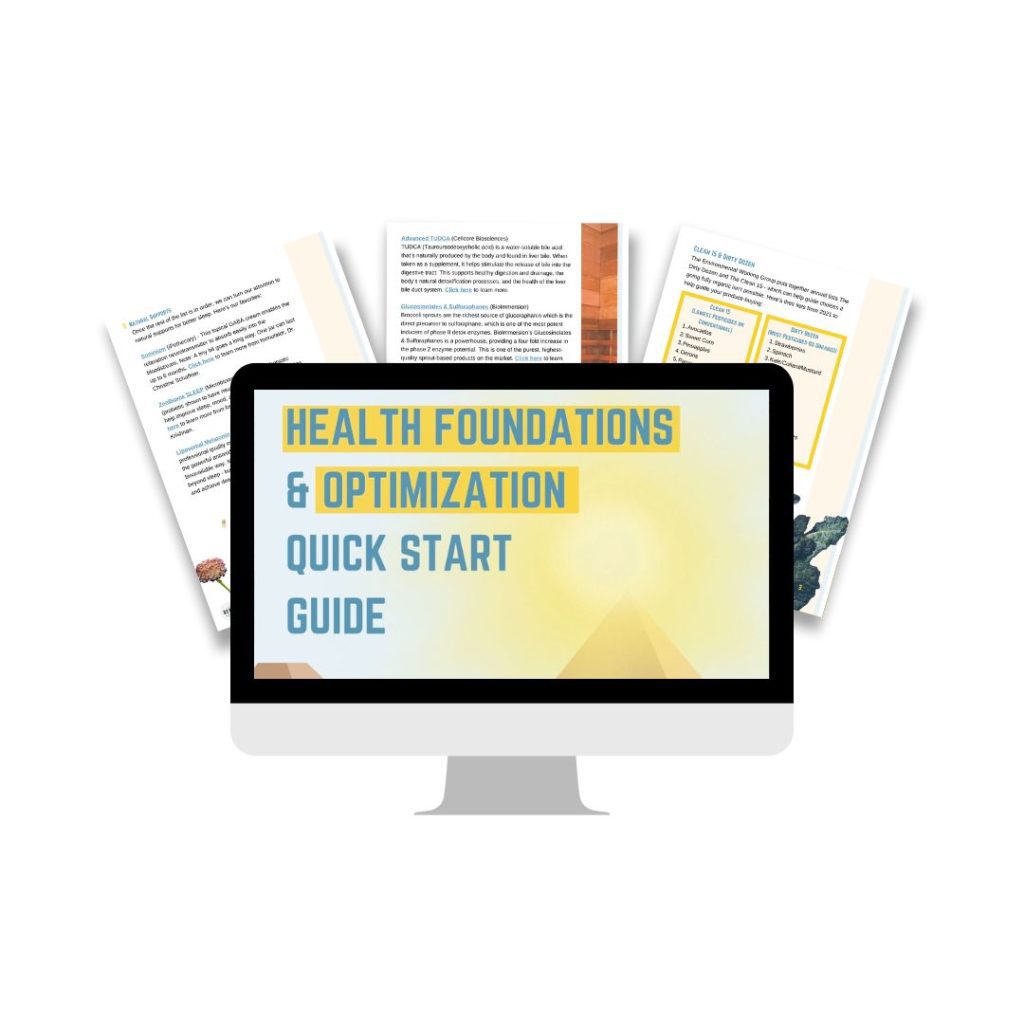
Foundations & Optimization Products
-
$49.00
-
$59.99
-
$49.00
Get Social
Recent Podcasts
Recent Courses
Toxicity & Detoxification Masterclass 2024
The toxicity and Detoxification Masterclass covers a wide array of topics with the following guests:
Brain & Nervous System Masterclass 2024
19 Leading Experts Share Cutting-Edge Science, Effective Practices, and Clinical Strategies to Optimize Brain & Nervous System Health in Kids and Adults
Autoimmune Masterclass 2024
Autoimmune Masterclass brings together 17 of the world’s leading doctors, researchers, and experts on autoimmune diseases who each present their own mini-class on autoimmunity.
Toxicity & Detoxification Masterclass
The toxicity and Detoxification Masterclass covers a wide array of topics with the following guests: 1. Lara Adler, Environmental Toxins Educator 2. Andrea Nakayama, Functional Medicine Nutritionist 3. Maya Shetreat, MD 4. Jill Carnahan, MD 5. Jaclyn Downs, Functional NutriGenomics 6. Dr. Jared Seigler 7. Eric Gordon, MD 8. Jennifer Fugo, MS, CNS 9. Dr. […]
This content is only available to members.
Get the RHT Newsletter
Be the first to get access to special offers, new podcasts, courses, products and events from Rebel Health Tribe.
MegaSporeBiotic™
MegaSporeBiotic is a probiotic blend of 5 Bacillus spores that have been shown to maintain healthy gut barrier and immune function.
Facebook
Twitter
Pinterest
LinkedIn
Reddit
WhatsApp
Telegram
StumbleUpon


